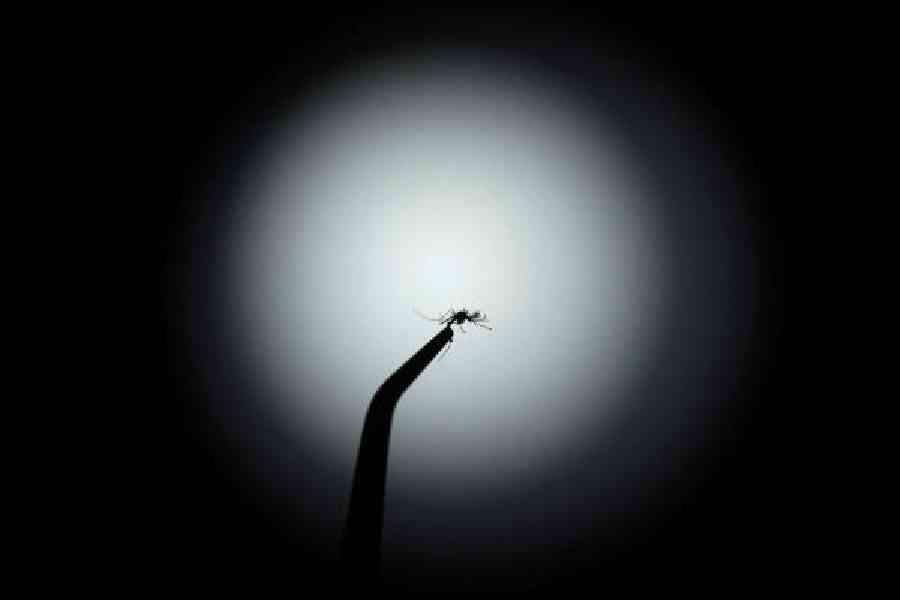The outbreak of dengue in Latin America over the past three months is staggering — 1 million cases in Brazil in a few weeks, a huge spike in Argentina, and emergency declared in Peru and Puerto Rico.
It forewarns of a changing landscape for the disease. The mosquitoes that spread dengue thrive in densely populated cities with weak infrastructure, and in warmer and wetter environments — a habitat that is expanding quickly with climate change.
Over 3.5 million cases have been confirmed by governments in Latin America in the first three months of 2024, compared with 4.5 million in all of 2023. There have been more than 1,000 deaths so far this year. The Pan-American Health Organization is warning that this may be the worst year for dengue ever recorded.
Researchers in Brazil delivered the lone shred of good news with the recent announcement that a clinical trial of a new dengue vaccine, delivered in a single shot, had provided strong protection.
There are two existing vaccines but one is an expensive two-shot regimen, while the other can only be given to people who have already had a dengue infection.
The new one-shot vaccine uses live, weakened forms of all four strains of the dengue virus. It was created by scientists at the National Institutes of Health, US, and licensed for development by the Instituto Butantan, a public research institute in Sao Paulo, Brazil.
Butantan already produces most of the immunisations used in Brazil and has the capacity to make tens of millions of doses of this new one. The institute plans to submit the dengue vaccine to Brazil’s regulatory agency for approval in the next few months and could begin producing it next year.
But that won’t help with this outbreak, and by the time the production gears up and a national rollout gets started, it may not be enough to help with the next one, either; dengue typically surges in three or four-year cycles.
And it won’t necessarily be of help to the rest of Latin America: Butantan will make the vaccine only for Brazil. The multinational drug company Merck & Co., which also licensed the NIH technology, is developing a related vaccine that will be sold in the rest of the world; the efficacy of that vaccine has not yet been tested in a late-stage clinical trial.
And there is demand for a dengue vaccine beyond the Americas: mosquitoes are spreading the disease to Croatia, Italy, California and other regions that haven’t seen it before. Places used to handling mild outbreaks now face record-breaking ones: Bangladesh had 3,00,000 cases last year.
Dengue is also known as breakbone fever, after the excruciating joint pain it causes. Not everybody experiences that pain: three-quarters of people infected don’t have any symptoms, and among those who do, most resemble a mild flu.
But about 5 per cent will progress to severe dengue. Plasma, the protein-rich fluid of blood, can start to leak out of blood vessels, causing patients to go into shock or have organ failure.
When patients with severe dengue are treated with blood transfusions and intravenous fluids, the mortality rate tends to be between 2 per cent and 5 per cent. But when they don’t get treatment — because they don’t realise it’s dengue and don’t seek treatment quickly enough, or because health centres are overwhelmed — the mortality rate is 15 per cent.
In Brazil, the outbreak is hitting children hardest; those younger than five have the highest mortality rate of any age group, followed by those ages five to nine. Adolescents between 10 and 14 have the highest number of confirmed cases, according to the Instituto Oswaldo Cruz, a national public health research centre.
As clinics began to be overwhelmed with dengue patients, the government bought the entire global stock of a Japanese-made vaccine called Qdenga. Public health nurses are delivering it to children ages six to 16, but there will only be enough vaccine to fully vaccinate 3.3 million of Brazil’s 220 million people this year.
This will protect a few million children, but it won’t contribute anything to its herd immunity.
NYTNS










